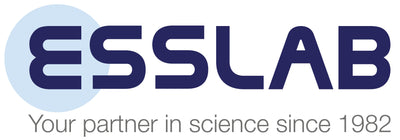
CRMs are essential for achieving traceability and comparability of analytical results between laboratories. There is a wide variety of analyte, concentration and matrix combinations available from CRM manufacturers, enabling analysts to select CRMs appropriate for the samples routinely analysed.
Due to this wide variety of analyte and matrix combinations, many CRMs fall into at least one hazard group, classing them as 'Dangerous Goods' meaning they must be handled, packed and shipped in specific ways.
What makes inorganic CRMs hazardous?
The most common hazardous products manufactured contain nitric acid, hydrofluoric acid, hydrochloric acid, and sulfuric acid, further information can be seen here.
In addition to a Certificate of Analysis, all CRMs must be accompanied by a comprehensive Safety Data Sheet providing comprehensive handling and safety information with respect to:
- Identification of the substance/preparation and of the company/undertaking hazards identification
- Composition/information on ingredients
- First aid measures
- Firefighting measures
- Accidental release measures
- Handling and storage
- Exposure controls/personal protection
- Physical and chemical properties
- Stability and reactivity
- Toxicological information
- Ecological information
- Disposal considerations
- Transport information
- Regulatory information
Typically, all anion chromatography standards are prepared in a matrix of water and therefore not classified as hazardous and can be shipped as non-hazardous aqueous solutions. For the same reasons, a few cation standards also non-hazardous as are Water QC standards.
Depending on the hazard group, and method of the goods' travel, senders must adhere to strict shipping regulations;
Air freight shipping regulations
Unfortunately, approximately 95% of all inorganic CRM’s fall into at least one of the nine hazard classes regulated by the International Air Transport Association (IATA). Due to this, specialist handling by the shipper and freight handler is required, which significantly increases shipping costs. To minimise these costs and avoid stock-outs, an understanding of how these charges and regulations work, enable distributors and end-users to plan efficiently.
Road freight shipping regulations

As with air freight, transporting hazardous goods by road is also strictly regulated. Most European countries have signed up to ADR* regulations, ensuring that such goods can cross international borders freely providing all documentation for goods, vehicles, and drivers comply with its rules.
In addition to inorganic CRMs, other hazardous goods include laboratory chemicals, radioactive materials, compressed gases, and contaminated material. At times, these materials need to be shipped to a different site or back to the manufacturer. It is important to comply with how these shipments are regulated, as failure to understand these regulations poses a risk to safety and can result in legal prosecution. The shipper and carrier must demonstrate continuous technical proficiency and qualification from the designated authorities to properly classify, prepare, package, and handle hazardous materials in strict compliance with IATA, ADR or IMDG regulations.
Consider the potential issues: avoidable additional costs, delays, and sustainability
- Failure to comply with IATA, ADR or IMDG regulations can pose a potential risk to health in the event of incidents such as spillage.
- Persistent failings to follow regulations can result in the loss of your right to ship.
- Hefty fines and imprisonment may be imposed on individuals who ignore the regulations.
- Only trained persons and certified organizations may ship hazardous materials.
- Delivery delays and additional costs may occur due to incorrect documentation.
- Forward planning to consolidate orders and buying in bulk minimises hazardous goods surcharges and the environmental impact of multiple deliveries.
- Inorganic Ventures CRM’s have an extended 5-year shelf life from date of manufacture, meaning both distributors and end-users can make commercial savings buying in bulk with the confidence of extended expiry dates.
ESSLAB trained personnel ensure on-time deliveries at minimum cost

Leave a comment